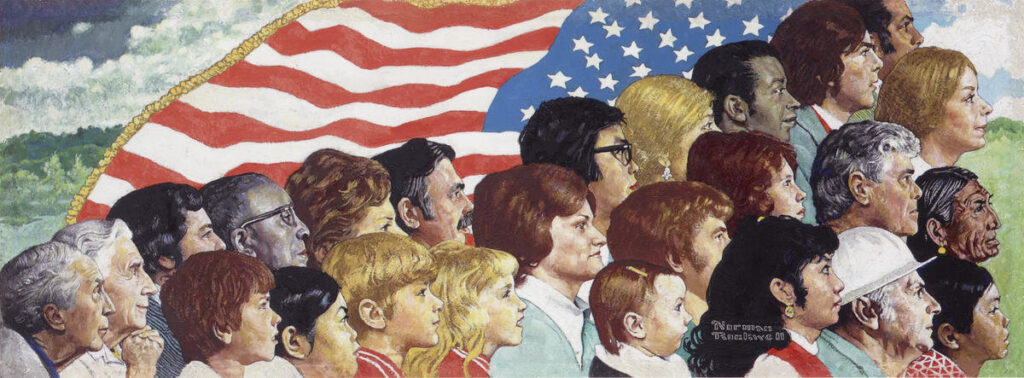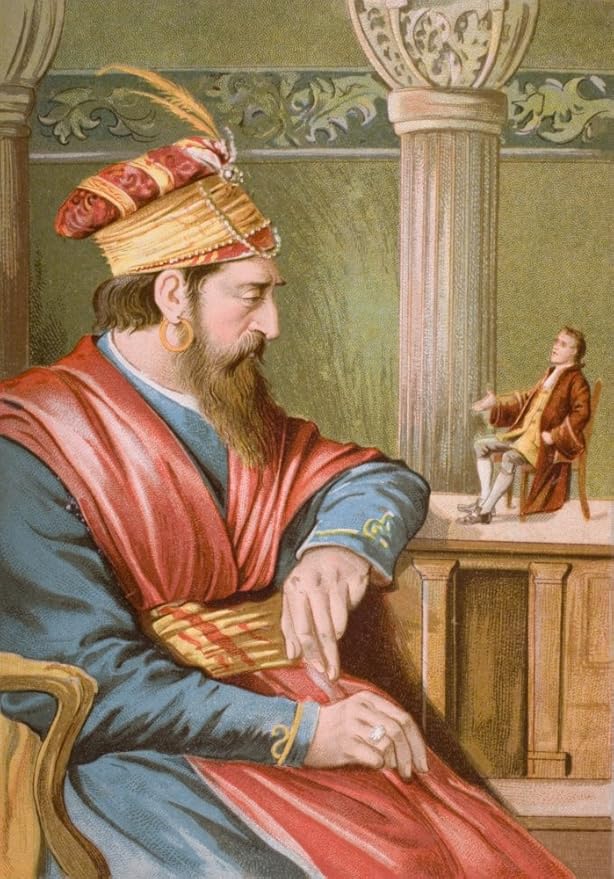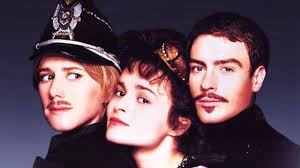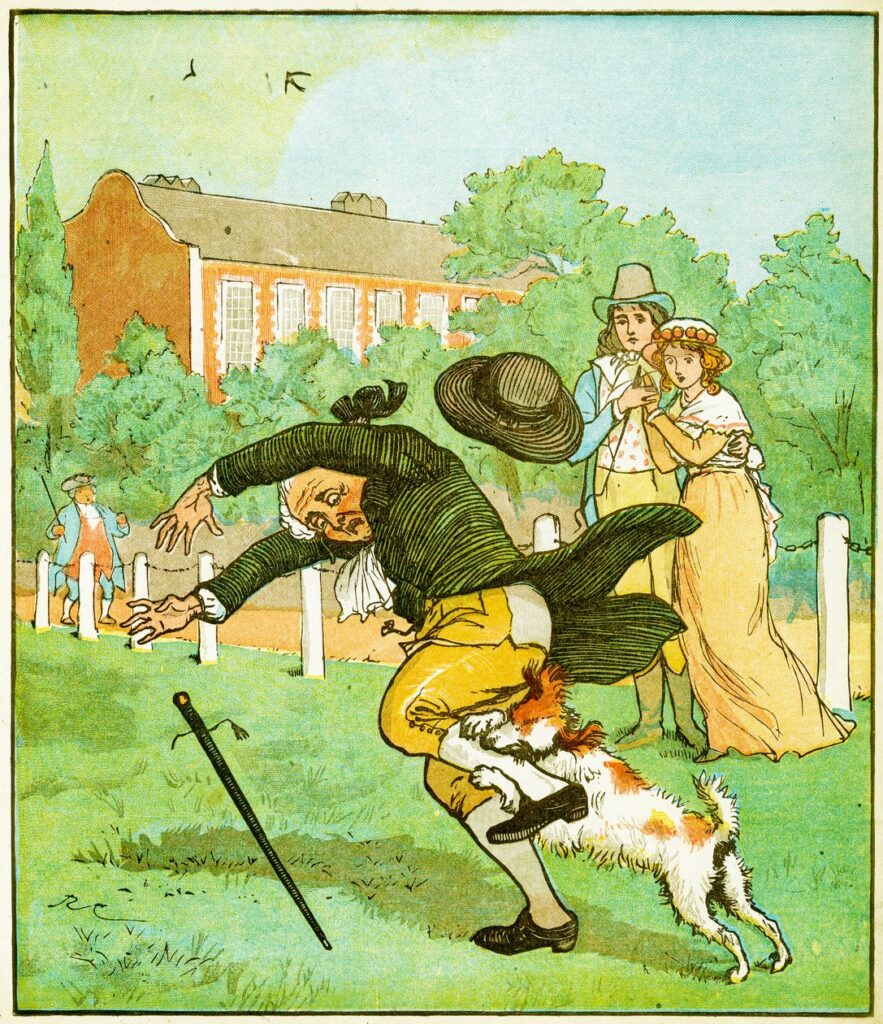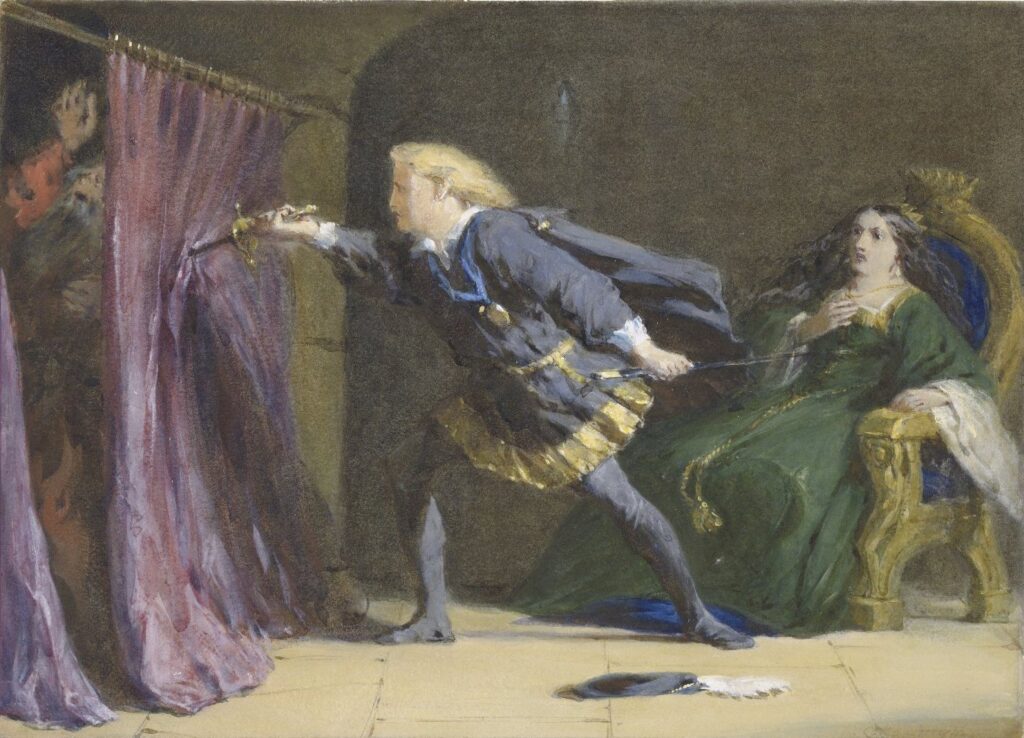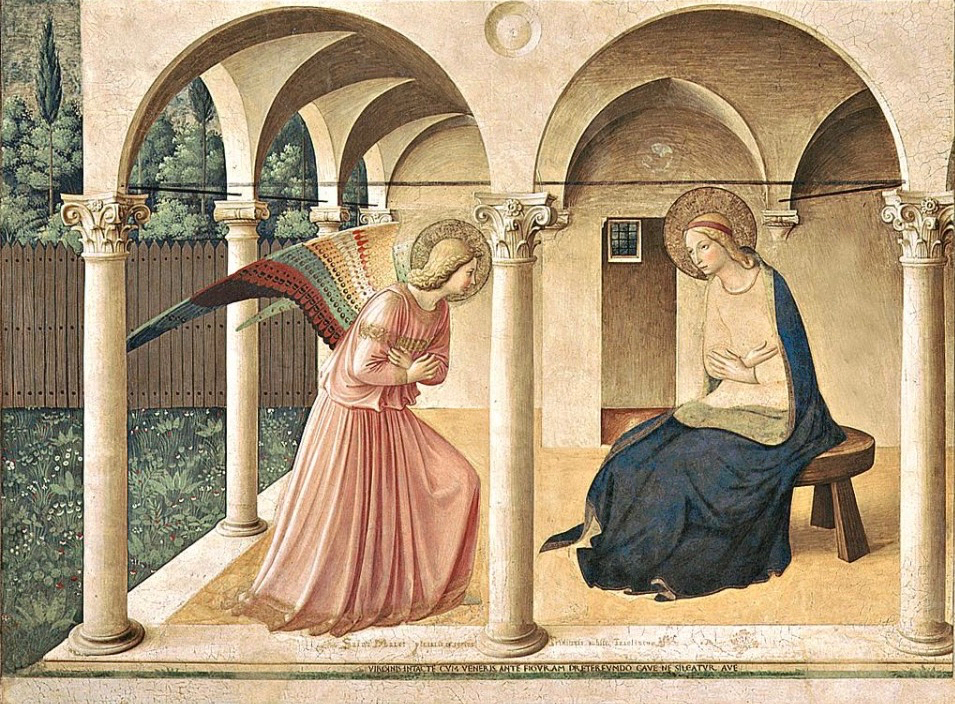Note: If you wish to receive, via e-mail, (1) my weekly newsletter or (2) daily copies of these posts, write to me at rrbates1951@gmail.com. Comments may also be sent to this address. I promise not to share your e-mail with anyone. To unsubscribe, write here as well.
Sunday
This past year our church has sponsored a series of lecture devoted to the theme, “This Fragile Earth, Our Island Home.” The talks have been tremendously successful, ranging from biologists talking about human cells to botanists sharing research about Appalachian plant species to forest managers describing trees responding to fire. The series concluded on a high note as English professor Dr. Andrea Sanders explored poet Wendell Berry’s vision of the Sabbath.
Andrea accompanied her talk with stunning photographs and, at one point, the song of a wood thrush. She agreed to allow me to share the talk here although, without the photos and bird song, it is not quite as spectacular. On the plus side, reading the talk allows you to sit for a while in the poems she shares.
By Andrea Sanders, delivered in the Adult Forum series “This Fragile Earth, Our Island Home” at the Parish of St. Mark and St. Paul on the Mountain, Sewanee TN, March 30, 2025
I want to start by thanking Robin Bates and his committee for putting together this Sunday Forum series. Like many of you, I have been delighted and inspired by what I have heard. Often, our themes and even our examples overlap. Hopefully, our synergy will fuel continued talk and action on these topics.
My husband Tom is a nut about bicycles. He rides them, collects them from dumpsters, fixes them up, and gives them away. When you ask Tom how many bicycles a person should have, his answer is “N + 1,” with “N” standing for the number of bicycles you currently have and the “plus 1” being the next bicycle you get–and on to infinity.
Why am I telling you about Tom and his bicycles? It’s because, while I was working on this talk and we were talking about the meaning of the Sabbath, Tom told me what happens to him when he rides a bike. He zips along, pedaling, not thinking, just getting into the rhythm–world passing by, wind on his face, sights and sounds around him. He says it becomes a moment, not of motion, but of great stillness as he sheds all the anxieties he woke up with that morning. Out of this motionless forward momentum emerge insights and revelations, ideas that probably would not have come to him had he simply stayed put inside his office, his eyes glued to a screen.
The restorative powers of stillness and reflection are what the Sabbath is all about, with a special resonance during the season of Lent. The word “sabbath” is derived from a Hebrew word meaning “rest.” The word “Lent” comes from the Old English word lencten, which refers to the lengthening of days in the spring season.
To signal the beginning of this season, we observe Ash Wednesday, the day we are reminded of our earthly mortality. As Lent begins, some of us give up some form of earthly pleasure to honor the 40 days Jesus fasted in the desert. This quiet time of meditation, prayer, and abstinence from worldly desires prepares us for the celebration of Christ’s resurrection. Just as the wildflowers gather their strength underground to burst into bloom in the spring, we gather our strength during Lent to replenish and rejuvenate our spirits–to get our hearts and minds in the right place, ready to bloom in the spirit.
In his book The Sabbath, Rabbi Abraham Heschel defines the Sabbath as a retreat from the cares and materialism of daily existence. But he frames the experience as less of a retreat from and more of a retreat to a rejuvenating peace and glimpse of the eternal.
Rabbi Heschel talks about how, as humans, we are limited by our belief that time has a past, present, and future. Yet he observes that, from the perspective of eternity, humans are actually limited by space, not time. Honoring the Sabbath gives us an opportunity to step into Sabbath time, eternal time. He says, “Time is everlasting; it is the world of space which is perishing,” and by this he means the “world of space” where our mortal bodies reside. He continues:
It is the dimension of time wherein man meets God, wherein man becomes aware that every instant is an act of creation, a Beginning, opening up new roads for ultimate realizations. Time is the presence of God in the world of space, and it is within time that we are able to sense the unity of all beings.
In Herschel’s definition, “space” might be Tom’s pedals on the bike, whereas time is his still center and the opening of his mind. I’m sure we’ve all had moments where we are suddenly awash in eternity. It can happen anywhere, anytime: you might be sitting by a mountain stream or staring out at the Grand Canyon or looking into your brand-new grandbaby’s eyes–or just stepping out of your car at the Piggly Wiggly.
It’s a moment that feels like you’re hitting the pause button on regular, prosaic time. You recognize, fleetingly, your small place in the fabric of the universe but also your belongingness in it. You are one with it; you are one with God and creation. In Sabbath time, during which we glimpse the eternal, we also sense our unity with creation.
Wendell Berry attempts to capture this “dimension of time” in Sabbaths, 2005, XIII:
Eternity is not an infinity.
It is not a long time.
It does not begin at the end of time.
It does not run parallel to time.
In its entirety it always was.
In its entirety it will always be.
It is entirely present always.
This talk will try to capture that spirit of quiet, reflective, yet active questing for a state of mind that is both present here on earth and also present in the eternity of creation–Sabbath time or Sabbath rest. As John Gatta tells us in his book Green Gospel, “Observance of the Sabbath, modelled on God’s seventh-day ‘rest,’ presented a formidable, sacred limit to humanity’s otherwise unlimited ambition to work and amass wealth, to achieve, to strive for more and more rather than resting in what had been given.” Sabbath rest is a time when we turn away from the noise and materialism of the workaday world–the world that often holds us prisoner to deadlines, appointments, reports, buying and selling. As Wordsworth said,
The world is too much with us; late and soon,
Getting and spending, we lay waste our powers;—
Little we see in Nature that is ours;
We have given our hearts away, a sordid boon!
As we talk today, I hope you will take a mental vacation–a “Sabbath rest”– from thinking analytically and put yourself in your mind’s eye walking along your favorite path in the woods or gazing across your neighbor’s pasture or watching the sunset from the Sewanee cross. Sabbath rest is not just for Sunday or for Lent, but a practice that we can revisit again and again for restoration, strength, and insight.
We will focus on Wendell Berry, a writer many of you know and love, and who infuses the sense of the eternal and our unity with Creation into his Sabbath poetry. Robin and I share another favorite author, the literature scholar Wayne Booth, who wrote a book called The Company We Keep: An Ethics of Fiction. In this book, Booth explains how reading is engaging in a reciprocal dialogue with another person–and sometimes we need to consider carefully the people we hang out with. Wendell Berry is the type of company we keep to make us better people.
Berry, who has visited Sewanee multiple times, lives in Henry County, Kentucky, where he was born and has farmed for over 40 years. He has written over 50 books of poetry, fiction, and essays, all of which champion the agrarian life, living locally in harmony with nature, and basing one’s life on the bonds of neighborliness and affection for other people and all the earth’s inhabitants.
But what I just said makes him sound a little too mild; he is an activist: staunch in his advocacy against technology and against the misplaced value system in our current economy. His actions and writings on these topics are uncompromising and fierce, and they would definitely be appropriate for our forum topic “Our Fragile Earth.” However, for today’s talk, I have decided to focus on his more philosophical and meditative side.
Since 1979, Berry has periodically written and published what he calls his “Sabbath poems.” In his introduction to This Day, a collection of Sabbath poems he wrote from 1979 to 2013 and from which I choose many of the following lyrics, he writes,
On Sunday mornings I often attend a church in which I sometimes sat with my grandfather, in which I sometimes sit with my grandchildren, and in which my wife plays the piano. But I am a bad-weather churchgoer. When the weather is good, sometimes when it is only tolerable, I am drawn to the woods on the local hillsides or along the streams. . . . In such places, on the best of these Sabbath days, I experience a lovely freedom from expectations–other people’s and also my own. I go free from the tasks and intentions of my workdays, and so my mind becomes hospitable to unintended thoughts: to what I am very willing to call inspiration.
This quotation captures the idea that the Sabbath–like Tom’s bike ride–sets something free in us to make space for inspiration to enter in. And if it sounds like he is playing hooky from church as a “bad-weather churchgoer,” he is not the only one. You will recall Emily Dickinson’s poem “Some keep the Sabbath” from Robin’s talk just a couple of weeks ago:
Some keep the Sabbath going to Church –
I keep it, staying at Home –
With a Bobolink for a Chorister –
And an Orchard, for a Dome –
Some keep the Sabbath in Surplice –
I, just wear my Wings –
And instead of tolling the Bell, for Church,
Our little Sexton – sings.
God preaches, a noted Clergyman –
And the sermon is never long,
So instead of getting to Heaven, at last –
I’m going, all along.
Why do so many of us (including so many of my students) fall in love with this poem? Maybe because it captures
- how the tiniest of nature’s inhabitants is sacred and evokes the sense of the sacred in us,
- how the persona identifies with the bobolink–wearing her “wings” as though she herself is one of Matthew’s “least of these” or “lily of the field,”
- how the poem connects being immersed in nature and sensing infinity,
- how the poet resolves that Heaven is right here, right now, all around us.
Wendell Berry too makes much of the deep connection between the infinite and the natural world. Nature is the ongoing act of God’s creation, and–since we are a part of nature–we, too, are an ongoing act of God’s creation. Referencing the creation story in Genesis and the fourth commandment in Exodus, Berry tells us that
The Sabbath is the day, and the successive days honoring the day, when God rested after finishing the work of creation. . . . The idea of the Sabbath gains in meaning as it is brought out-of-doors and into a place where nature’s principles of self-sustaining wholeness and health are still evident. In such a place–as never, for me, under a roof–the natural and the supernatural, the heavenly and the earthly, the soul and the body, the wondrous and the ordinary, all appear to occur together in the one fabric of creation.
Like Emily Dickinson, Berry sees the presence of God in the trees, which are, for him, a “timbered choir.” In this poem, he is talking about a small woodland he “let alone” at his farm, land he allowed to recover naturally from having been strip-mined:
Sabbaths, 1986, I
Slowly, slowly, they return
To the small woodland let alone:
Great trees, outspreading and upright,
Apostles of the living light.
Patient as stars, they build in air
Tier after tier a timbered choir,
Stout beams upholding weightless grace
Of song, a blessing on this place.
They stand in waiting all around,
Uprisings of their native ground,
Downcomings of the distant light;
They are the advent they await.
Receiving sun and giving shade,
Their life’s a benefaction made,
And is a benediction said
Over the living and the dead.
In fall their brightened leaves, released,
Fly down the wind, and we are pleased
To walk on radiance, amazed.
O light come down to earth, be praised!
In The Gift of Good Land, Berry tells us,
In token of His landlordship, God required a Sabbath for the land, which was to be left fallow every seventh year; and a Sabbath of Sabbaths every fiftieth year, a “year of jubilee,” during which not only would the fields lie fallow, but the land would be returned to its original owners, as if to free it of the taint of trade and the conceit of human ownership. But beyond their agricultural and social intent, these Sabbaths ritualize an observance of the limits of “my power and the might of mine hand”–the limits of human control. Looking at their fallowed fields, the people are to be reminded that the land is there only by gift; it exists in its own right, and does not begin or end with any human purpose.
Berry sees the Sabbath of Sabbaths–the jubilee–as a celebration that emphasizes the gift of good land and the limitations of human control. In other words, it is an occasion for us to be humble, which reminds me of the season of Lent and also of another Sabbath poem:
Sabbaths, 2012, VIII
Since, despite the stern demands
of scientist and realist, we will always
be supposing, let us suppose
that Nature gave the world flowers
and birdsong as a language, by which
it might speak to discerning humans.
And what must we say back? Not
just thanks or praise, but acts
of kindness bespeaking kinship
with the creatures and with Nature, acts
faithful as the woods that dwells in place
time out of mind, self-denying
as the parenthood of the birds, and like
the flowers humble and beautiful.
You’ll notice that this jubilee is also an occasion to give not only thanks and praise but also “acts / of kindness bespeaking kinship / with the creatures and with Nature.” Berry feels deeply the kinship with his land, his neighbors, and all of creation. Like Aldo Leopold in Sand County Almanac, he has learned to “think like a mountain.” Like Robin Wall Kimmerer in Braiding Sweetgrass, he has made respect for and reciprocity with all of creation the basis of his value system. Berry continues:
[W]e depend upon other creatures and survive by their deaths. To live, we must daily break the body and shed the blood of Creation. When we do this knowingly, lovingly, skillfully, reverently, it is a sacrament. When we do it ignorantly, greedily, clumsily, destructively, it is a desecration. In such desecration we condemn ourselves to spiritual and moral loneliness, and others to want.
In an interview with Bill Moyers, Berry talks about the absurdity of farmers having to leave their country life behind because they can’t make a living. He says, “It’s a result of having the wrong idea about what we mean by ‘making a living’ in the first place. To make a living is not to make a killing, it’s to have enough.”
This idea of having “enough” and finding joy and fulfillment in sharing with and respecting the rest of creation is intimately tied to the idea of the Sabbath. Maria Popova, whose blog The Marginalian many of us enjoy, writes about how Berry’s insistence on taking a Sabbath rest constitutes an act of resistance against our culture’s “cult of more.” To take a Sabbath in nature is even more radical, for nature is “that eternal pasture of enoughness.” She continues:
To be in nature, without doing, is to be reminded that we are nature, too; that we cannot force the creative force that made us; that we need not keep breaking our own hearts on expectation’s cold hard edge of not-enough.
In the Moyers interview, Berry makes the connections between Nature, Sabbath, and values even more explicit:
I consider myself a person who takes the Gospel very seriously. . . . A lot of my writing, when it hasn’t been in defense of precious things, has been a giving of thanks for precious things. . . . It’s mighty hard right now to think of anything that is precious that isn’t in danger.
People of religious faith know that the world is maintained every day by the same force that created it. It’s an article of my faith and belief that all creatures live by breathing God’s breath and participating in His spirit. And this means that the whole thing’s holy–the whole shootin’ match. There are no sacred and unsacred places; there are only sacred and desecrated places. So finally I see those gouges in the surface mine country as desecrations, not just as land abuse, not just as human oppression, but as desecration, as blasphemy.
His Sabbath poems defend and give thanks for precious things, and they celebrate the sacredness of nature and community. They share the joy of the Sabbath jubilee, the inevitability of the season of death, and the promise of rebirth. Furthermore, for Berry there is no separation between what an anthropologist might call the sacred and the profane. All are of a piece. All are woven into the same fabric. If we do not take care of the land and each other, we are blasphemers.
In the poem “How to Be a Poet,” Berry gives some good advice:
Make a place to sit down.
Sit down. Be quiet.
. . .
There are no unsacred places;
there are only sacred places
and desecrated places.
Make a place to sit down.
Sit down. Be quiet.
. . .
Accept what comes from silence.
Make the best you can of it.
Of the little words that come
out of the silence, like prayers
prayed back to the one who prays,
make a poem that does not disturb
the silence from which it came.
Berry often emphasizes the need for quiet, for silence. One reason is to make room to listen. Another is that words are simply inadequate. He says, “To be quiet, even wordless, in a good place is a better gift than poetry.” In celebrating the Sabbath outside in quiet solitude, he is honoring a sacred gift, one that we can enjoy on any day of the week:
That one is sometimes able, among the disturbances of the present world, to wander into some good and beautiful whereabouts of the woods, grow quiet, and come to rest is a gift, a wonder, and a kind of grace. Though associated with a particular day, this is a possibility that may present itself at any time.
Berry associates being silent and fully present in Nature with being open and receptive to grace, to life, and to eternity. Sometimes Berry’s language echoes that of T. S. Eliot, who also recognizes the inadequacy of language, the perception of the eternal, and the shadow of being human and being trapped in and tempted by the material world, where we lose vision, where we lose insight, as Jesus in human flesh was tempted in the desert:
Words strain,
Crack and sometimes break, under the burden,
Under the tension, slip, slide, perish,
Decay with imprecision, will not stay in place,
Will not stay still.
Time past and time future
What might have been and what has been
Point to one end, which is always present.
. . . say that the end precedes the beginning,
And the end and the beginning were always there
Before the beginning and after the end.
And all is always now.
The Word in the desert
Is most attacked by voices of temptation,
The crying shadow in the funeral dance. . . .
(from Four Quartets, “Burnt Norton”)
In the following Sabbath poem, Berry explores what happens when we cannot find Sabbath rest and are, in effect, lost in the desert:
Sabbaths, 1980, V
Six days of work are spent
To make a Sunday quiet
That Sabbath may return.
It comes in unconcern;
We cannot earn or buy it.
Suppose rest is not sent
Or comes and goes unknown,
The light, unseen, unshown.
Suppose the day begins
In wrath at circumstance,
Or anger at one’s friends
In vain self-innocence
False to the very light,
Breaking the sun in half,
Or anger at oneself
Whose controverting will
Would have the sun stand still.
The world is lost in loss
Of patience; the old curse
Returns, and is made worse
As newly justified.
In hopeless fret and fuss,
In rage at worldly plight
Creation is defied, all order is unpropped,
All light and singing stopped.
The Sabbath might go “unseen, unshown” because we are angry at events, at friends, at ourselves–but in all cases, “the world is lost in loss / Of patience” and “the old curse”–by which I think he means Adam’s curse–returns and “All light and singing” are “stopped.”
In another poem, Berry’s language echoes Eliot’s as he strains to convey the now of creation and of the narrow passage we must navigate to get there. The ending, the passage through the narrow gap, requires a stripping away of the body’s life to the “shadow of the mercy of light.” To get to the Sabbath, we must leave anger and pettiness behind and pass through “the narrow gate”:
Sabbaths 1985, V
How long does it take to make the woods?
As long as it takes to make the world.
The woods is present as the world is, the presence
Of all its past, and of all its time to come.
It is always finished, it is always being made, the act
Of its making forever greater than the act of its destruction.
It is a part of eternity, for its end and beginning
Belong to the end and beginning of all things,
The beginning lost in the end, the end in the beginning.
What is the way to the woods, how do you go there?
By climbing up through the six days’ field,
kept in all the body’s years, the body’s
sorrow, weariness, and joy. By passing through
the narrow gate on the far side of that field
where the pasture grass of the body’s life gives way
to the high, original standing of the trees.
By coming into the shadow, the shadow
of the grace of the strait way’s ending,
the shadow of the mercy of light.
Why must the gate be narrow?
Because you cannot pass beyond it burdened.
To come in among these trees you must leave behind
The six days’ world, all of it, all of its plans and hopes.
You must come without weapon or tool, alone,
Expecting nothing, remembering nothing,
Into the ease of sign, the brotherhood of eye and leaf.
Sometimes Berry avoids explanation and tries to get us through that narrow passage by helping us simply be present in Nature, demanding nothing of it and quietly joining in the experience. Here is one of my favorite poems of this type:
Sabbath VIII, 1994
And now this leaf lies brightly on the ground.
Why aren’t there more words in this poem? Berry is working in the tradition of haiku and imagism, in which words were used to evoke an explicit experience of the real. For example, the ancient poet Kobayashi Issa wrote:
On a branch
floating downriver
a cricket, singing.
The Modernist poet Ezra Pound, meanwhile, saw the sudden “apparition of face in the crowd” as “petals on a wet, black bough.”
For his part, T. S. Eliot sought the “objective correlative,” the precise words that would convey lived experience, and in “Ars Poetica,” Archibald Macleish famously said, “A poem should not mean / But be.” Virginia Woolf described her “moments of being,” and Gaston Bachelard talked about the “poetic instant.” Words are inadequate to convey reality, but poets, perhaps, take us as close as we can get.
Here are two more beautiful examples. What I love about these poems is how they invite us to the experience, call us to the table, to be nourished by what we find there, much of which comes from our own memories and imagination–the realm of God and Creation. Close your eyes and listen to the wood thrush while I read these poems to you:
Sabbath 1996, VI
A bird the size
of a leaf fills
the whole lucid
evening with
his note, and flies.
And:
Sabbath 1997, I
Best of any song
is bird song
in the quiet, but first
you must have the quiet.
In these poems we become Emerson’s famous “transparent eyeball”:
In the woods, we return to reason and faith. There I feel that nothing can befall me in life—no disgrace, no calamity . . . which nature cannot repair. Standing on the bare ground—my head bathed by the blithe air, and uplifted into infinite space—all mean egotism vanishes. I become a transparent Eyeball; I am nothing; I see all; the currents of the Universal Being circulate through me; I am part or particle of God.
Having played the song of the wood thrush, I remind you, as Tom reminded me, that Emerson’s friend Henry David Thoreau said in his Journal of July 5, 1852: “The thrush alone declares the immortal wealth and vigor that is in the forest. . . . Whenever a man hears it, he is young, and Nature is in her spring. Wherever he hears it, it is a new world and a free country, and the gates of heaven are not shut against him.” In the Sabbath moment, in Sabbath rest, the gates of heaven are opened to us.
We can pair Sabbath V of 1980, where Berry says, “The old curse / Returns, and is made worse,” with the idea of finding Sabbath rest by stepping a toe into eternity. When I read “The old curse,” I think, of course, of Adam’s curse–of the knowledge of good and evil, of being exiled from the garden to a wasteland, of alienation from God and intimate union with creation, of being lost to language and daily toil. To be human is to be mortal; life itself comes paired up with a death sentence. Creation is not all roses; the roses have thorns. The Sabbath reminds us that the story of creation is the story of life and death, joy and sorrow, pleasure and pain, triumph and tragedy. Experiencing the Sabbath gives us the perspective we need to see that all are of a piece, a tightly-woven fabric in eternity.
No one conveys the complexity of the sacred tapestry of creation better than Annie Dillard, whose Pilgrim at Tinker Creek is one long Sabbath excursion into the natural world. As she says, “Evolution loves death more than it loves you or me. . . . We value the individual supremely, and nature values him not a whit.” In fact, she says, “that something is everywhere and always amiss is part of the very stuff of creation.”
Dillar concludes, “The terms are clear: if you want to live you have to die. . . . A scientist calls it the Second Law of Thermodynamics. A poet says–and, of course, that poet is Dylan Thomas, “‘The force that through the green fuse drives the flower/Drives my green age.’” In other words, the same generative life that creates us and propels us also dooms us. How do we reconcile this truth with the fullness of creation as revealed in the Sabbath?
Dillard recounts a dream where she saw “all the individual people . . . in their individual times and places . . . dying and being replaced by ever more people, one by one, like stitches in which whole worlds of feeling and energy were wrapped, in a never-ending cloth.” This is the fabric of creation–so huge and infinite that we cannot comprehend it. It is this ignorance that may prevent us from having faith. “Faithlessness,” she says,
is a cowering cowardice born of our very smallness, a massive failure of imagination. . . . If we were to judge nature by its common sense or likelihood, we wouldn’t believe the world existed. . . . The whole creation is one lunatic fringe. If creation had been left up to me, I’m sure I wouldn’t have had the imagination or courage to do more than shape a single, reasonably sized atom, smooth as a snowball, and let it go at that. No claims of any and all revelation could be so far-fetched as a single giraffe.
In the presence of the immensity of creation–and stifled by our perceptions of our own fallibility–ordinary humans tend to lack vision. Maybe this is one reason that poets and artists might end up saving the world. Dillard describes a goldfinch sitting atop a thistle, on a perch of fluffy, downy seeds surrounded by thorns. She uses the image to make a point about creation:
The thistle is part of Adam’s curse. “Cursed is the ground for thy sake; in sorrow shalt thou eat of it all the days of thy life; Thorns also and thistles shall it bring forth to thee.” A terrible curse: But does the goldfinch eat thorny sorrow with the thistle, or do I? If this furling air is fallen, then the fall was happy indeed. If this creekside garden is sorrow, then I seek martyrdom. This crown of thorns sits light on my skull, like wings. The Venetian Baroque painter Tiepolo painted Christ as a red-lipped infant clutching a goldfinch; the goldfinch seems to be looking around in search of thorns. Creation itself was the fall, a burst into the thorny beauty of the real.
Creation is both rose and thorns. To embrace our place in creation, we must embrace life and death, embrace the fall, embrace the mystery of both the beauty and the misery of existence, embrace our imperfections and the grace that allows us to rise above them.
I am reminded of the Japanese concepts of wabi-sabi, finding beauty in the natural imperfections of people and things, and kintsugi, “golden joinery,” a technique in which precious pottery is repaired with gold–the lines of the brokenness making the pot even more beautiful. And these ideas remind me of Leonard Cohen’s famous phrases:
Ring the bells that still can ring
Forget your perfect offering
There is a crack, a crack in everything
That’s how the light gets in…
We cannot allow our obsessions with our imperfections, our things, our lack of things–our everyday trivialities–blind us to the unfathomable richness we have been blessed with in the unity of creation. Echoing Thomas Merton’s exhortation for us to quit “diddl[ing] around in the contemplative life, making itsy-bitsy statues,” Dillard invites us–as does Berry–to stop tippy-toeing around in the quotidian and embrace the immensity of the gift we have been given. Dillard meets Berry in the gaps, in his “narrow gate,” his silent woods:
It is so self-conscious, so apparently moral, simply to step aside from the gaps where the creeks and winds pour down, saying, I never merited this grace, quite rightly, and then to sulk along the rest of your days on the edge of rage. I won’t have it. The world is wilder than that in all directions, more dangerous and bitter, more extravagant and bright. We are making hay when we should be making whoopee; we are raising tomatoes when we should be raising Cain, or Lazarus. Ezekiel excoriates false prophets as those who have “not gone up into the gaps.” The gaps are the thing.The gaps are the spirit’s one home, the altitudes and latitudes so dazzlingly spare and clean that the spirit can discover itself for the first time like a once-blind man unbound. The gaps are the cliffs in the rock where you cower to see the back parts of God; they are the fissures between mountains and cells the wind lances through, the icy narrowing fiords splitting the cliffs of mystery. Go up into the gaps. If you can find them; they shift and vanish too. Stalk the gaps. Squeak into a gap in the soil, turn, and unlock–more than a maple–a universe. This is how you spend this afternoon, and tomorrow morning, and tomorrow afternoon. Spend the afternoon. You can’t take it with you.
In the gaps is where we find rebirth and redemption and are at home in creation, as Berry reveals in these poems:
Sabbaths 1992, III
Again we come
to the resurrection
of bloodroot from the dark,
a hand that reaches up
out of the ground,
holding a lamp.
And:
Sabbaths 1992, II
Lift up the dead leaves
and see, waiting
in the dark, in cold March,
the purplish stems, leaves,
and buds of twinleaf,
infinitely tender, infinitely
expectant. They straighten
slowly into the light after
the nights of frost. At last
the venture is made: the brief
blossoms open, the petals fall,
the hinged capsules of seed
grow big. The possibility
of this return returns
again to the seed, the dark,
the long wait, and the light again.
And this poem, which emphasizes that being “invisible” in nature–the “transparent eyeball,” the meditative silence and receptivity of the Sabbath mind. We must pass through the “narrow gap” to be truly at home in creation:
Sabbaths 1980, IV
The frog with lichened back and golden thigh
Sits still almost invisible
On leafed and lichened stem,
Invisibility
Its sign of being at home
There in its given place, and well.
The warbler with its quivering striped throat
Would live almost beyond my sight,
Almost beyond belief,
But for its double note–
Among high leaves a leaf,
At ease, at home in air and light.
And I, through woods and fields, through fallen days,
Am passing to where I belong:
At home, at ease, and well,
In Sabbaths of this place
Almost invisible,
Toward which I go from song to song.
In a final Sabbath poem, I see a blessing and a benediction and a fine way to end this talk. Berry helps us realize that as we release our Earthly desires in the Sabbath moment and become one with creation, we recognize that we are “the maker’s joy in what is made,” which is “the joy in which we come to rest.”
Sabbaths 2007, XII
Learn by little the desire for all things
Which perhaps is not desire at all
But undying love which perhaps
Is not love at all but gratitude
For the being of all things which
Perhaps is not gratitude at all
But the maker’s joy in what is made,
The joy in which we come to rest.
